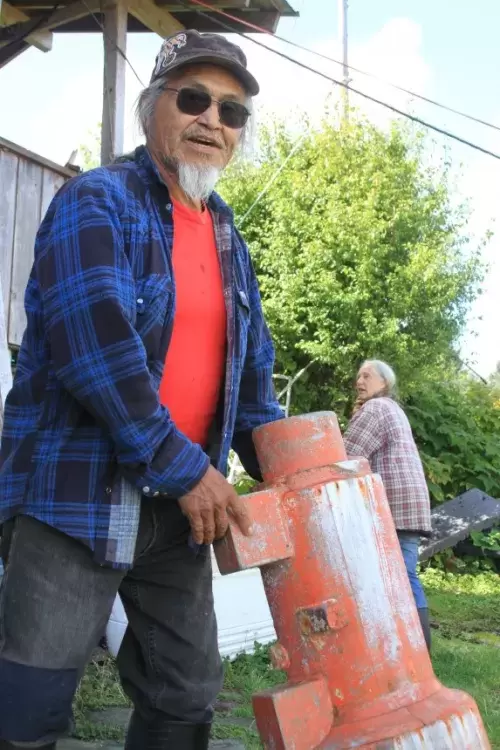Gord Johns is pleased the federal government has announced more than $8 million in funding to help clean up some of the country’s coastlines.
But Johns, the MP for the Courtenay-Alberni riding, believes a lot more needs to be done.
“It’s a good first step by the government but it’s just a beginning,” he said. “They have to come up with a long-term plan.”
The federal government announced in late August it would provide up to $8.3 million to help fish harvesters, environmental groups, Indigenous communities, the aquaculture industry, and coastal communities to find and retrieve ghost gear from the country’s waters.
The federal announcement followed the results of a three-day ghost fishing gear retrieval program, which was held this past July in the Gulf of St. Lawrence.
During that cleanup nine kilometres of rope and more than 100 snow crab traps were removed from the waters.
Federal officials, however, have not indicated which parts of the country will receive some of its pledged funding. Those decisions are not expected to come until next year.
That’s in part because Fisheries and Oceans Canada, which is also frequently called the Department of Fisheries and Oceans (DFO), is planning to hold a gear innovation summit this coming February. A site has yet to be announced. That summit will include discussions and collaborations for those interested in ghost gear removal and new technologies in the industry that will help prevent abandoned, lost or discarded fishing gear, which is collectively called ghost gear.
Communities and groups will then be able to submit applications to request funding for cleanups in their areas.
It is estimated that about 640,000 tonnes of ghost gear enters oceans every year. Besides potentially being harmful to fish, whales, sharks and turtles, the ghost gear also threatens the environment when it is left in the waters.
Johns said a great deal of funds are currently required on Vancouver Island’s west coast to help with cleanups.
“It’s a huge issue,” he said. “Local groups and organizations are working around the clock now trying to retrieve things. This is a coastal issue people know about no matter where you live in Canada.”
Dianne Ignace, who has lived in Hesquiaht Harbour with her husband Dave for the past 44 years, is well aware just how much cleanup work is required locally.
Last year during a six-day cleanup of the local beach about 80 tonnes of garbage was collected. This trash included countless plastic bottles, ropes, crates as well as gas and propane tanks.
“We weren’t surprised,” Ignace said of the amount of garbage collected. “What was surprising though was the thoroughness of the cleanup. Almost everything was from the beach. You wouldn’t believe how much stuff there was.”
Having lived at her current location for more than four decades, Ignace is also fully aware of just how much garbage is in the local waters.
“There is a lot of stuff there but you can’t really see it now because there is this wild mustard growing and it’s covering up a lot of it,” she said.
And it will not be an easy feat to dispose of remaining materials in the local waters.
“They’ve got a long way to go,” Ignace said.
As for Johns, who aims to retain his seat in this year’s federal election set for Oct. 21, he’s hoping local groups and organizations stay on top of this issue and apply for some cleanup funding.
Johns is also hoping federal politicians realize the enormity of the cleanup required and commit to additional funding.
“Of course we’d like to see more,” he said. “But we commend the government for this start. Coming from zero, it’s a start. We hope there’s much more investment after a strong plan is in place.”
Canada has the longest coastline in the world. And its politicians realize they need to be leaders in cleanup efforts, according to recent messaging from the federal government.
“Removing harmful ghost fishing gear from the oceans will support a healthy ocean environment and contribute to the economic resilience of Canada’s coastal and rural communities,” Jonathan Wilkinson, the Minister of Fisheries, Oceans and the Canadian Coast Guard said in a news release announcing the federal government’s funding announcement.







